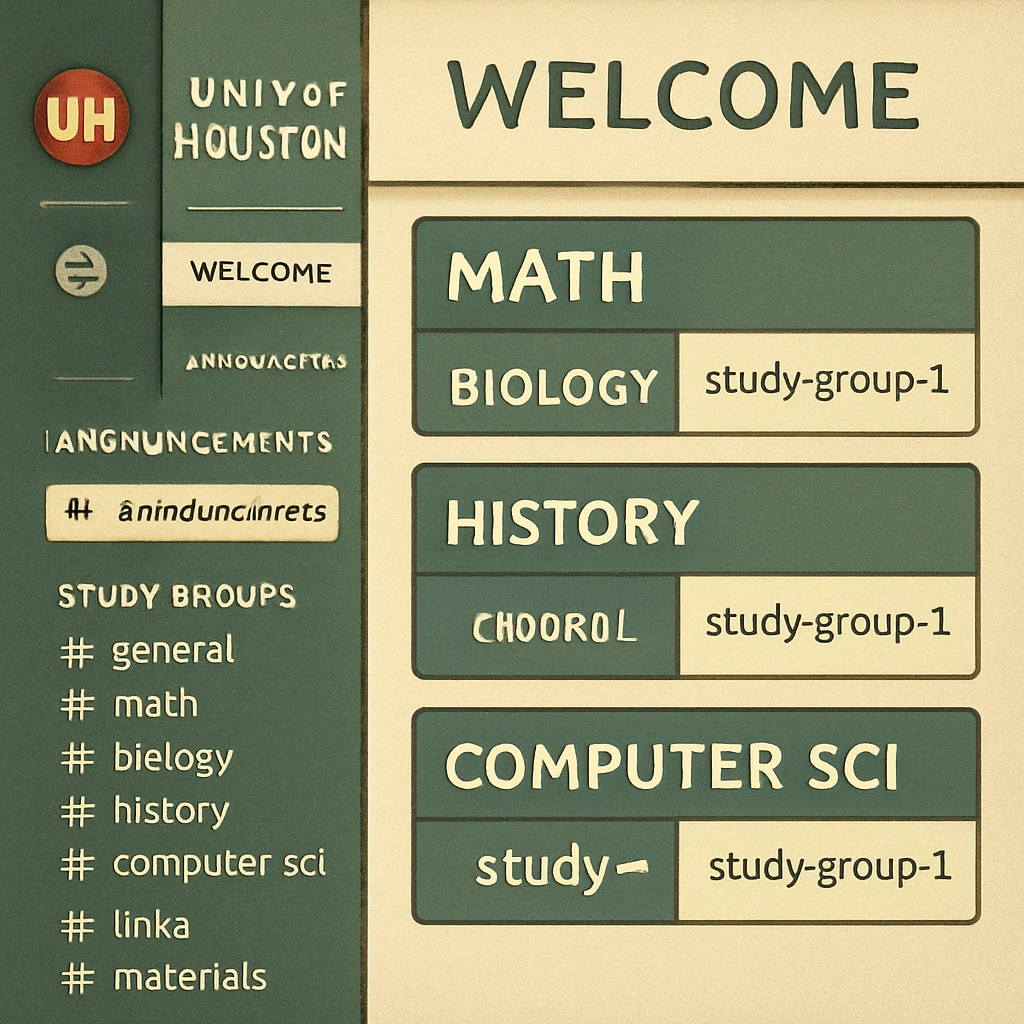Transitioning from K12 education to higher education can be a daunting experience for many students. The importance of having a robust academic support network cannot be overstated, especially at institutions like the University of Houston. Study groups, digital platforms such as Discord, and other learning communities play a crucial role in ensuring academic success for students navigating this new chapter. In this article, we’ll explore strategies to find and establish these resources to support your journey.
Why Academic Support Networks Matter
As a University of Houston student, you’ll quickly realize that collaboration and shared learning are essential for academic success. Study groups allow students to break down complex topics, share diverse perspectives, and prepare effectively for exams. Additionally, platforms like Discord provide flexible, online spaces for peer discussions, file sharing, and real-time communication.

For example, research has shown that students engaged in collaborative learning often retain information better and develop critical thinking skills faster. By joining or forming a study group, you can leverage your peers’ strengths and fill gaps in your own understanding.
Finding Study Groups and Learning Platforms
At the University of Houston, there are various ways to connect with academic support networks. Start by exploring campus bulletin boards or asking professors for recommendations. Many academic departments also facilitate study groups specific to challenging subjects like engineering, mathematics, or chemistry. Additionally, online platforms such as Discord have become popular for student collaboration, offering organized channels and dedicated spaces for different courses or topics.
Here are some practical steps to find or create your own study network:
- Join campus-wide communities: Attend events organized by student organizations or academic departments.
- Utilize social media: Many University of Houston students create Facebook or Discord groups for specific classes.
- Create your own group: Invite classmates and use tools like Discord or Google Meet to organize virtual study sessions.

Harnessing the Power of Discord
Discord is more than just a gaming chat tool; it has become a powerful educational platform. With features like voice channels, text channels, and file-sharing capabilities, Discord helps University of Houston students stay connected and productive. For instance, you can set up a dedicated server for your study group with specific channels for lecture notes, assignment discussions, and exam preparation.
Moreover, Discord allows for asynchronous communication, meaning you can ask questions or share resources even when others are offline. This flexibility is particularly beneficial for students balancing coursework with jobs or other responsibilities.
Building Your Academic Success Network
Establishing a successful academic support network at the University of Houston requires effort and initiative. Here are some tips to get started:
- Start small: Invite a few classmates and gradually expand your group.
- Set clear goals: Define objectives for each study session, such as reviewing specific chapters or solving practice problems.
- Stay consistent: Regular meetings foster accountability and help maintain momentum.
- Leverage technology: Use Discord, Google Docs, or other tools to keep everyone on the same page.
As a result, students who actively participate in these communities often report feeling more confident and prepared, both academically and socially.
Conclusion
Transitioning to higher education at the University of Houston presents unique challenges, but finding and building academic support networks can make a significant difference in your success. Whether through traditional study groups or innovative platforms like Discord, the resources are there for you to utilize. By taking initiative and collaborating with others, you can navigate your academic journey with confidence and achieve your goals.
For more information about learning communities and study strategies, visit Study Groups on Wikipedia or explore Education on Britannica.


